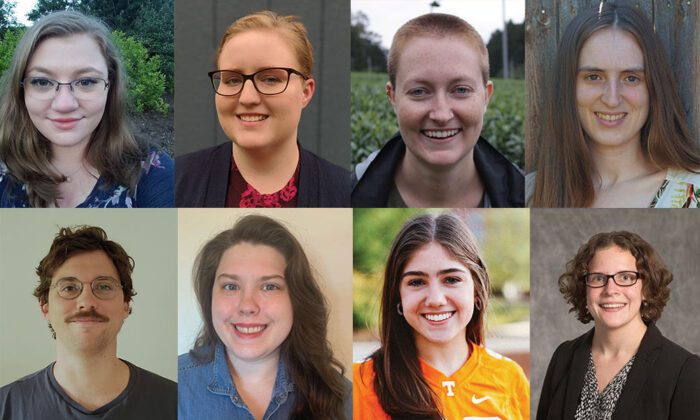New Students Join Science Liaison CALL Project

Eight new MSIS master’s students are joining the second cohort of the Collaborative Analysis Liaison Librarians (CALL) instructional project this fall semester, bringing the number of CALL participants to 12. The program was created with funding awarded by the Institute of Museum and Library Services’ (IMLS) Laura Bush 21st Century Librarian grant program. SIS Associate Professor Wade Bishop is principal investigator, with SIS and Chancellor’s Professor Suzie Allard as co-investigator.
“The first cohort laid a great foundation of research in liaison librarianship through an expanded review of the literature and job analyses to prepare future science liaison librarians. In the second year, more work will be conducted on the information needs of scientists and also address how the capabilities and roles of science liaison librarians may be conveyed to scientists,” Bishop said.
Bishop said that all the knowledge gathered by CALL students throughout this three-year project will be disseminated via publications and presentations at a science librarianship summit. He is excited to welcome the eight new students, who are: Jessica Atkins, Kelsey Badger, Matt Cowan, Claire Jordan, Hannah Nelsen, Katerina Ozment, Brittany Waltemate, Olivia Young. They join last year’s four CALL students, Hannah Armendarez, Erika Fitzpatrick, Ashley Orehek and Shafer Powell.
Waltemate said she realized her undergraduate degree in geographic information system (GIS) wasn’t going to give her the kind of career she wanted, and the CALL program is providing an opportunity for her to use and teach her passion for GIS to others.
“I wanted a field that allowed me to continue to learn and be challenged and allowed me to interact with a variety of people. In the field of information science, even though I am not able to do rocket science, I am able to support the incredible researchers and scientists that do,” she said. “It is incredibly rewarding to teach someone about my passion of GIS and watch them apply it in their own projects. I like that I am able to learn about a variety of subjects through the lens of data.”
Ruth McCue, program manager with the Center for Information and Communication Studies, is managing the project. She said this project is vital to provide information professionals who can function as liaisons “between science and all the data that is out in the world.” As data grows exponentially, research scientists need assistance from professionals who know how to sift through the massive amounts of documents and global databases to find the information they need. The CALL project is training students to do just that.
CALL students get to participate in advanced research to discover what knowledge, skills, and abilities are required for science liaisons via surveys and other methodology. They also are mentored by people who are working at companies in comparable science liaison roles, McCue said.
This year, CALL activities will be conducted completely virtually due to the COVID-19 pandemic, rather than on-campus as originally intended. McCue said she’s organized various virtual ways for the students to stay in touch with each other since they won’t be interacting in-person.
“This was an easy choice for them, to keep everybody safe,” McCue said.